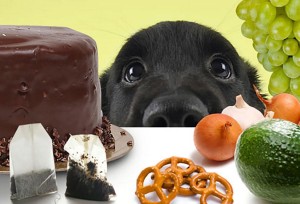News
POISONS PUT LITTLEHAMPTON PETS IN PERIL
by admin on December 1st, 2016
Category: News, Tags:
Poisons put Littlehampton pets in peril, as 95% of vets report cases.
Fitzalan House Vets warn local pet owners to guard against poisonous perils after the British Veterinary Association’s (BVA) Voice of the Veterinary Profession survey showed 95%of South-East region companion animal vets had seen cases of toxic ingestion or other toxic incidents over the last year.
Across the UK, vets saw on average one cases of poisoning every month, with chocolate (89%), rat poison (78%) and grapes (60%) the most common poisons that vets had treated. Other poisons involved in the cases vets had seen included:
Other less common cases involved xylitol poisoning from chewing gum, poisoning from wild mushrooms and fungi, as well as horse worming products ingested by dogs.
Vets know that sometimes owners can take every precaution and accidents still happen. If an owner suspects their pet may have ingested or come into contact with any harmful substance they should contact us immediately on 01903-713806 for advice.
BVA President Gudrun Ravetz said:
“These findings from BVA’s Voice of the Veterinary Profession survey show how common incidents of pet poisoning are and underline that owners must be vigilant especially with prying pets. The top five poisoning cases seen by vets include foods that are not toxic to humans but which pose a significant risk to pets such as dogs, like chocolate and grapes, alongside other toxic substances such as rat poison and antifreeze. Owners can take steps to avoid both perils – keep human food away from and out of reach of pets and make sure other toxic substances and medicines are kept securely locked away in pet-proof containers and cupboards.”
Responses are currently closed, but you can trackback from your own site.


